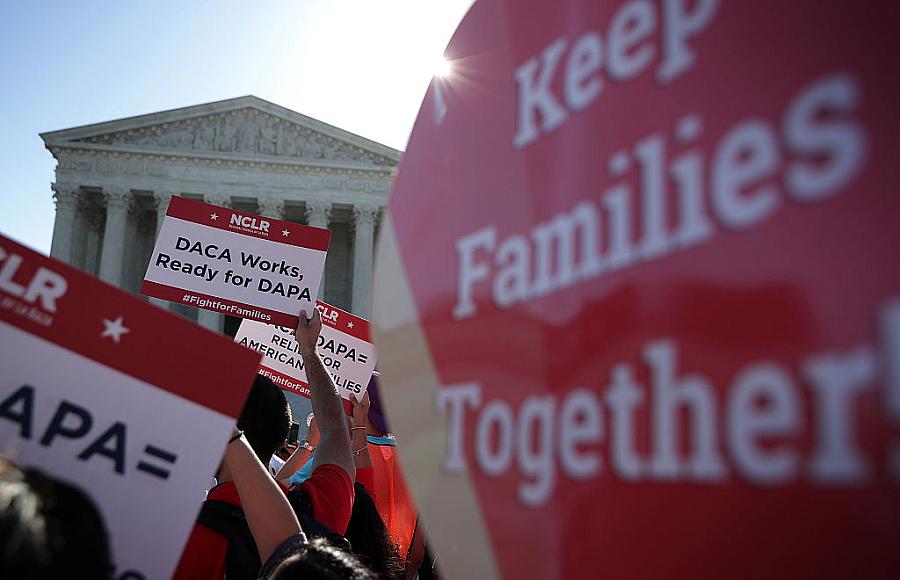Supreme Court ruling leaves millions of immigrants more vulnerable to illness

Photo: Alex Wong/Getty Images
Last week’s Supreme Court tie decision halted protections against deportation for undocumented immigrants with long-standing roots in the United States — undermining efforts to integrate them into our society. The non-decision blocks adults from the stability work permits; it prevents young people from the hope of a professional career; and it denies them all the peace of mind that comes with having health care coverage.
This doesn’t mean that President Obama’s executive orders were a direct path to health insurance for the beneficiaries of the Deferred Action for Childhood Arrivals (DACA and DACA+), which covers children brought to the U.S. by undocumented parents, nor for beneficiaries of Deferred Action for Parents of American and Lawful Permanent Residents (DAPA), which covers the undocumented parents of U.S.-born children.
The Affordable Care Act already specifically excluded the undocumented from coverage. However, five states — California, Massachusetts, Minnesota, New York, Washington, and the District of Columbia — expanded their Medicaid programs in order to cover these residents. This in and of itself came as a boon for low-income immigrants, in contrast to other states that denied any Medicaid expansion for purely partisan and political motives.
Those covered under DACA won’t be immediately affected by the Supreme Court’s decision. Instead, it is the undocumented immigrants covered under DACA+ and DAPA who have lost the most. It was these individuals who benefitted from Obama’s executive order, and it was that action that the court ruled on. The court’s decision will have a profound impact on the Latino community, which has always had the highest numbers of uninsured and who were among the biggest beneficiaries of the Affordable Care Act.
A Supreme Court ruling affirming Obama’s actions would have helped minors under DACA as well. A number of studies conducted in California and New York have shown that youth participation in these plans was quite low because of the public’s lack of awareness. The momentum to bring in new beneficiaries would have invigorated the states’ efforts to sign-up more people.
California is an example of this. The state was fully ready, with a budget to cover bringing in between 310,000 to 440,000 new beneficiaries. Now, with the Court ruling, everything has been put on hold.
We know that one’s immigration status shapes one’s relationship to the medical system. The lack of health insurance to cover preventative care leads the uninsured to visit doctors less frequently and only when there is health crisis. This impacts not only those who are sick but entire families and communities. For example, one of the health challenges in the Latino community is late detection of HIV due to the lack of routine medical care. That’s the kind of health problem that can impact entire communities.
Then there is the financial impact on both individuals and the state. It is difficult to control health care costs when the uninsured are forced to turn to emergency room visits for non-emergency situations, which is both inefficient and incredibly expensive.
President Obama’s decision to selectively provide protections to those individuals who meet the criteria of DACA and DAPA recognized that there are a large number of immigrants who have made their lives in the United States and who have strong family ties. It makes sense to take these individuals off the priority lists for deportations, thereby enabling immigration authorities to focus specifically on those undocumented individuals who represent a danger to society.
Unfortunately, the entire immigration issue has become so politicized that the positive contributions of immigrants to the country’s economy and other sectors are rendered invisible by vitriolic misrepresentations and fear-mongering. These same polarizing voices have paralyzed Congress, despite the fact that poll after poll show that the majority of Americans support a pathway to legalization and access to health coverage for undocumented residents.
The Republican-led Congress is celebrating the Supreme Court’s ruling as a victory against what they perceive to be the overreach of Obama’s White House. But behind the debate are four million people who today are now more vulnerable to illness and deportation, with nowhere to turn.

